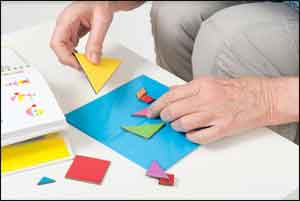- Home
- Editorial
- News
- Practice Guidelines
- Anesthesiology Guidelines
- Cancer Guidelines
- Cardiac Sciences Guidelines
- Critical Care Guidelines
- Dentistry Guidelines
- Dermatology Guidelines
- Diabetes and Endo Guidelines
- Diagnostics Guidelines
- ENT Guidelines
- Featured Practice Guidelines
- Gastroenterology Guidelines
- Geriatrics Guidelines
- Medicine Guidelines
- Nephrology Guidelines
- Neurosciences Guidelines
- Obs and Gynae Guidelines
- Ophthalmology Guidelines
- Orthopaedics Guidelines
- Paediatrics Guidelines
- Psychiatry Guidelines
- Pulmonology Guidelines
- Radiology Guidelines
- Surgery Guidelines
- Urology Guidelines
A Video game that boosts rehabilitation in stroke patients

The researchers from Imperial have designed a video game called Balloon Buddies, which is a tool that enables those recovering from conditions such as a stroke to engage and play together with healthy volunteers such as therapists and family members as a form of rehabilitation.
Balloon Buddies is designed to level the playing field by allowing healthy participants to support the less able player. The researchers have shown that this type of collaboration makes it more rewarding for the less-abled partner, more challenging for the better partner, and overall more fun for both, as they have to continuously work together to score points.
The team has trialed Balloon Buddies by getting patients to play it on their own in single player mode and then partnered with healthy volunteers during dual player gameplay. They found that the performance of the patient was boosted when they played with a healthy volunteer, compared to if they were playing the game on their own. In addition, they found that the poorer a patient's single player performance was, the greater the improvement seen when they played with another during the dual-player mode.
These findings published today in the Journal of Neuro Engineering and Rehabilitation (JNER), suggest that by increasing engagement with healthy volunteers, compared to playing alone, patients may be more likely to increase the effort they put into training, which could ultimately lead to greater gains in physical performance.
While the pilot study was limited to 16 patients and 32 healthy participants playing in 16 pairs, the researchers believe this form of rehabilitation through gaming may be beneficial to patients recovering from other illnesses such as musculoskeletal injuries, arthritis, and cerebral palsy. The researchers are aiming to further develop the game alongside new multiplayer concepts and show that it can be used in different settings including patients training with their therapist or with other patients, in community centers or even remotely at home.
Dr Michael Mace, the lead author from the Department of Bioengineering at Imperial College London, said: "Video games are a great way of providing repetitive exercise to help patients recover from debilitating illnesses. However, most games are designed for users to play on their own, which can actually discourage and isolate many patients. We developed the Balloon Buddy game to enable patients to train with their friends, family or caregivers in a collaborative and playful manner. The technology is still being developed, but we have shown that playing jointly with another individual may lead to increased engagement and better outcomes for patients."
Balloon Buddies uses animation, sounds, and vibration-feedback, similar to conventional video games. It requires users to balance a ball on a beam, which is lifted at each of its ends by balloons controlled by the players. The main aim of the game is for the players to vary the height of the beam so that the ball collides with moving targets in order to collect points. Players are also required to work together to keep the beam horizontal so that the ball doesn't roll off the platform. It is played with a wireless handgrip called GripAble, enabling people with arm weakness to control video games on any standard tablet device.
In the study, the researchers tested the game on 16 patients who had arm weakness following a stroke with a healthy volunteer over three months at Charing Cross Hospital, which is part of Imperial College Healthcare NHS Trust, in 2016. Previously, the game was also tested on 16 healthy pairs with different baseline abilities.
The team will now carry out a larger study to examine whether the game leads to more efficient learning and to examine if patients are more motivated to train for longer periods. They will also explore social implications of interaction such as the effect of patients playing with a relative versus a stranger.
The Balloon Buddies game is an example of the work of the Imperial Academic Health Science Centre (AHSC). This is a partnership between Imperial College London and three NHS Trusts, which aims to improve patient outcomes by harnessing scientific discoveries and translating them as quickly as possible into new diagnostics, devices, and therapies, in the NHS and beyond.
For more details click on the link : Michael Mace, Nawal Kinany, Paul Rinne, Anthony Rayner, Paul Bentley, Etienne Burdet. Balancing the playing field: collaborative gaming for physical training. Journal of NeuroEngineering and Rehabilitation, 2017; 14 (1) DOI: 10.1186/s12984-017-0319-x

Disclaimer: This site is primarily intended for healthcare professionals. Any content/information on this website does not replace the advice of medical and/or health professionals and should not be construed as medical/diagnostic advice/endorsement or prescription. Use of this site is subject to our terms of use, privacy policy, advertisement policy. © 2020 Minerva Medical Treatment Pvt Ltd